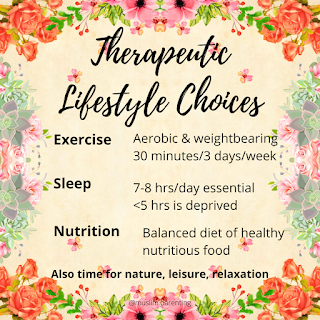How do we teach ourselves and our children to have patience and perseverance during trying times? How do we continue to struggle through and carry on without breaking and being uprooted? I think part of the solution to patience and perseverance is resilience and hope. Resilience is what will bounce us back up after being blown and pushed down and hope is what will carry us onward.
I was listening to a lecture and the presenter was telling us not to ask Allah for patience because when you do Allah will give you trials upon trials to cleanse your heart so that you will learn to be patient. Instead, we should ask Allah for a solution or cure to our dilemma. Subhanallah.
Resilience is not just about bouncing back up and surviving, it’s about thriving in those hostile and uncertain conditions as well. It’s learning how to manage life stressors to do well in the face of adversity and optimising your well-being. The good news with resilience is that you don’t have to be born with it. It can be learnt. Get ready to learn and teach it to your children.
1. Mindfulness
Mindfulness helps you to stay in the present so you don’t ruminate on the past or imagine what could go wrong in the future. Benefits of mindfulness is that it gives you better concentration and clarity in thinking, increases calmness, decrease stress and anxiety, increases empathy and physical health, among other things.
The more you practice it, the more present you’ll be, that is, you’ll get better at it. Here are some mindful practices that you could try.
To help children with mindful breathing, try triangle breathing or square breathing. (For more breathing exercises, get my childhood anxiety pack.)
2. Positive Relationships
Positive relationships such as good role models and mentors will give you the social support and guidance during difficult times and to help with your self development.
We need social relationships to provide us with support, love and help. But did you know the random connections that we make with others everyday at the checkout, on the bus or train, waiting in the line and so on also contribute to our happiness and wellbeing? Even just a nod, an eye contact or a smile will work. Remember that smiling at others is a sunnah!
Try to do as many acts of kindness for others as you can each day as it has been shown to increase the other person’s wellbeing as well as your own. Besides that if you do it for Allah then imagine your rewards!
You can either have someone mentor you so that you’d develop and grow or you can mentor someone and this would be the same as doing a kindness towards others.
Have a role model with the values that will inspire you. In Islam we have Prophet Muhammad (s) as well as other prophets, the companions, scholars, pious predecessors and so on for our models. Take them as our role models to do good and live good lives. Pick a role model and start learning about him/her.
Pick one positive relationship that you can do today. Do it well and pick another then another and so on.
3. Positive Emotions
Feeling positive emotions such as joy, gratitude, serenity, interest, hope, pride (the good type ie feeling proud of your efforts and not feeling better than others), amusement, inspiration, awe and love.
Have you felt any of these positive emotions today? The aim is to feel 3 positives to every 1 negative emotion.
When you do, you’re in the flourishing state. You’re more likely to experience growth and resilience, you’ll have a broaden mindset (your thinking widens as oppose to a narrow mindset), and you’ll take on the perspective of ‘we’ instead of ‘me’.
Most people are at the languishing state, that is, they feel 2 positive emotions to 1 negative emotion. This is where there’s no growth. (If you’re experiencing 1 positive to 1 negative then you’re likely to be anxious.).
The intensity of these feelings don’t matter but the frequency does. Aim to feel mild positive emotions frequently.
Increase your experience with positive emotions by focusing on small positive things, doing acts of kindness, experiencing flow, connecting with others, and practicing gratitude. Most of these are discussed in other sections.
4. Focus on the Positives
Instead of focusing on the negatives, draw your attention to the positives in your life. Practicing gratitude will help you to stay positive.
Are you the half empty or half full person? Keep looking for the silver lining. Whatever happens to us is for our own good even though we may not see the good yet.
One way to stay positive is to surround yourself with positive people. Look through your friends and acquaintances and decide who has a positive influence over you and who has a negative influence on you. How can you spend more time with the positive influencers and less with negative people?
5. Therapeutic Lifestyle Choices
Therapeutic lifestyle choices such as choosing nutritious food, choosing to exercise, choosing to sleep around 7-8 hours, and choosing to live your values all increases your wellbeing and resilience.
How many of these things do you do? I’m researching children’s academic performance and these 3 things are what contribute to high academic achievement as well as resilience, happiness/wellbeing, and decrease in dementia & Alzheimer, and probably more. Subhanallah.











No comments:
Post a Comment